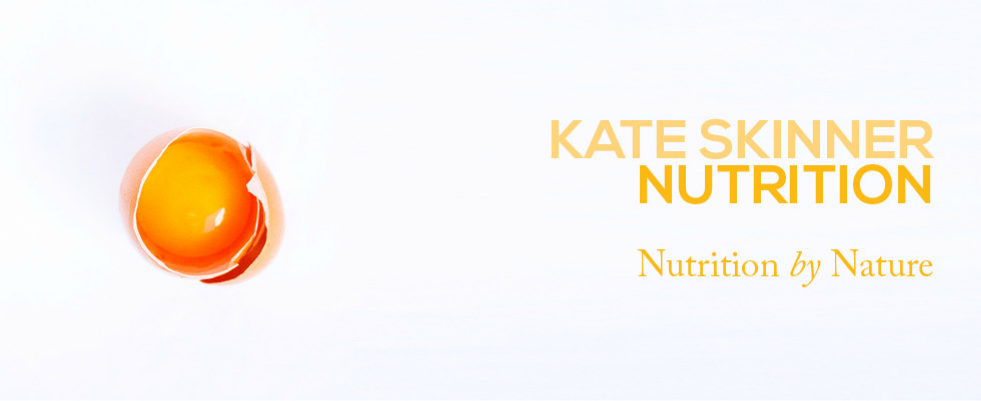You wouldn’t think it, but we actually require ample energy during the night in order to relax and sleep deeply, and energy metabolism plays a large role in promoting optimal rest. As energy production falls during the night, and blood sugar and temperature drop, stress hormones adrenalin and cortisol are secreted in order to raise blood sugar. In doing so, these hormones rely on stored glycogen (the stored form of glucose in the liver and muscles) or, if there is not enough glycogen available (as is the case in low carbohydrate diets), muscle tissue starts to be broken down for energy via a process called gluconeogenesis. The whole process is stressful for the body, resulting in disturbed sleep, and these stress hormones are also widely associated with overweight and obesity, and/or inability to lose weight. Ever woken up with a pounding heart or sweating? This could be due to an elevation of stress hormones (adrenalin, cortisol) secreted to combat blood sugar dysregulation (hypoglycemia) during the night.
Low blood sugar (hypoglycemia) → secretion of adrenalin and cortisol → reliance on stored glycogen (if carbohydrate intake is adequate) or muscle tissue breakdown (if carbohydrate intake is inadequate) for energy and regulation of blood sugar → disrupted sleep
Some other signs & symptoms of poor sleep quality related to impaired energy metabolism include:
- Waking feeling ‘unrested’ or finding it hard to wake up in the morning
- Nocturia (waking to urinate in the middle of the night)
- Difficulty getting to sleep or getting back to sleep after waking
- Difficulty switching off your mind at bedtime
- Low waking temperature
- Waking with a rapid heart beat
- Waking with swelling or coldness in the hands and feet
- Waking with no appetite (you should wake with a good appetite)
Dietary strategies for restful sleep:
- Eat something salty before bed. Sodium lowers stress hormones adrenalin and cortisol, as well as other stress mediators that can rise during sleep (serotonin, aldosterone). Salt (preferably unrefined sea salt) optimized blood volume and circulation of oxygen and nutrients and helps to stabilize blood sugar and body temperature (see this post on the need for adequate dietary salt). A little cheese (taken with some carbohydrate such as fruit), or salted foods (see suggestions below) are a good way to lower inflammatory stress responses during sleep.
- Eat something sweet before bed. The right natural sugars are anti-stress and also promote optimal body temperature and thyroid function. Ripe fruits, unprocessed honey, and milk sugars are nutrient-dense, excellent sources of sugar before bed. Unlike complex carbohydrates (grains, starch), these simple sugars are easily assimilated and utilized by the body, and are unlikely to cause digestive problems that may make it harder to sleep. Milk also contains calcium which benefits energy production, lowers parathyroid hormone and improves sleep quality – a glass of warm, organic milk with a little honey and sea salt is an effective sleep tonic before bed, and can also be helpful if you wake during the night unable to get back to sleep.
- Consume some gelatin before bed. The glycine in gelatin is highly anti-inflammatory and is an inhibitory neurotransmitter, promoting relaxation and natural sleep (see this post for more on the benefits of gelatin and glycine). A cup of decent bone stock with a little salt and organic butter or coconut oil is a great sleep-inducing combination, as is a gelatin-rich evening meal such as slow-cooked lamb shanks or beef cheeks. Alternatively, you could stir a spoonful of quality gelatin into your warm milk, or even into a glass of fresh orange juice.
- Balance your blood sugar during the day. What you eat during the day will affect you blood sugar control during the night and ability to sleep soundly. Eating balanced meals and snacks comprised of all the macronutrients (quality protein, healthy fats and adequate carbohydrate) will encourage optimal metabolic function and blood sugar control, reducing the stress response of the body that occurs to combat hypoglycemia (low blood sugar/blood sugar crash).
- Avoid all-protein meals at night. Whilst it is a popular trend to avoid carbohydrates at night, protein-rich meals without adequate carbohydrates are not conducive with restful sleep. The protein eaten alone can cause a significant dip in blood sugar during the night, which will precipitate the stress response described above, disrupting sleep. It is common for people eating protein-rich, low-carbohydrate meals in the evening to wake with a pounding heart due to increased adrenalin during the night. Include carbohydrates such as sweet potato, beetroot or other root vegetables with your evening meal, or follow a low-carbohydrate dinner with a serve of fresh fruit, yoghurt, honey or a glass of milk, to encourage stable blood sugar and lower stress response during the night.
- Ensuring adequate dietary magnesium. Magnesium promotes efficient metabolic energy production, and is also required for the relaxation of muscle tissues. Obtaining dietary magnesium is actually fairly difficult, as our soil is woefully deficient in this nutrient, but sources include fresh orange juice, leafy greens, cocoa (chocolate), white fish and shellfish (a high quality supplement or epsom salt (magnesium chloride) baths may also be used). Note that nuts, seeds, legumes and whole grains do technically contain magnesium but aren’t a good source of this nutrient as these foods contain phytates and other anti-nutrients that inhibit its absorption. Magnesium may help in the case of night twitches, teeth grinding (bruxism) and leg cramps (along with adequate sodium).
- Avoid polyunsaturated fats (PUFA) which suppress metabolism (inhibiting the use of glucose for energy), immune function, lower body temperature, inhibit protein digestion, promote stress hormones, oxidative stress, insulin resistance and inflammatory breakdown products (lipid peroxides, prostaglandins, isoprostanes, etc). This means avoiding all polyunsaturated vegetable oils (canola, flax/linseed, corn, soy, sunflower, safflower, margarine), isolated fish oil supplements, industrially-fed (conventional) poultry and large quantities of nuts and seeds. The best sources of fats are more saturated fats found in coconut oil, organic butter, chocolate, ghee, dairy, ruminant animal fat (cow, goat, sheep, lamb) and pastured egg yolks, along with some monounsaturated fats found in unrefined (extra virgin) olive oil and macadamia nuts. See this post for more on polyunsaturated oils.
Note: although generally thought of as conducive with good sleep, the hormones serotonin and melatonin are associated with stress, inflammation, tissue breakdown (catabolism) and reduced metabolism, and can disrupt restful, regenerative sleep. Supplements such as melatonin and/or 5-hydoxytryptophan (5-HTP) are not recommended.
Non-dietary strategies for restful sleep:
- Switch off the television and computer a few hours before bed.
- Avoid stimulants such as bright lights before bed.
- Calmative exercises such as gentle yoga, stretching or meditation.
- Avoid strenuous or cardiovascular exercise in the evening or before bed (workouts also raise stress hormones, deplete glycogen stores (needed to balance blood sugar whilst sleeping) and can decrease reproductive hormones that promote sleep quality).
- Avoid or limit alcohol intake, as alcohol disrupts blood sugar levels, causing hypoglycemia during the night.
- Increase body temperature before bed by taking a hot bath or shower, which will help to induce sleep, lower adrenalin and support good thyroid function (metabolism). An Epsom salt (magnesium sulfate) bath can also be a wonderful sleep-inducing practice before bedtime.
- Manage stress during the day with simple, unwinding activities such as listening to music, deep breathing, gentle movement exercises, a bath (as above), reading a book etc. Whatever it takes! Most of us run about all day with our nervous system in overdrive – it’s unrealistic to assume that it can just switch gears as soon as our head hits the pillow.
Kate is a certified Clinical Nutritionist and offers one-on-one coaching for clients in Sydney Australia, and internationally via Skype or email. Visit the nutrition services page to find out more about private coaching, and be sure to subscribe via email and follow the Nutrition by Nature Facebook page for blog updates, articles, nutrition tips, recipes and special offers.

